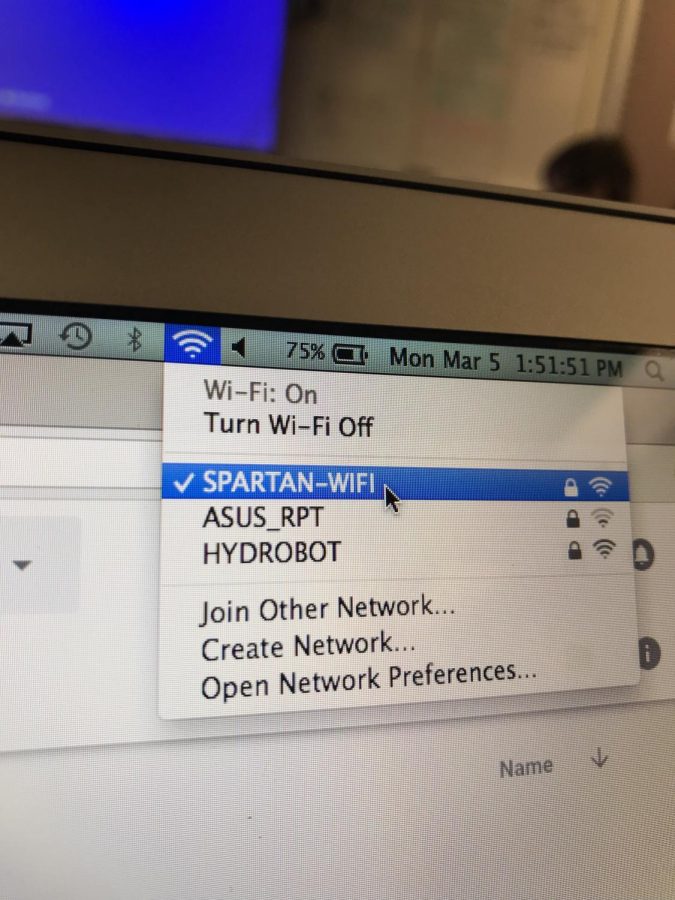SL Students Continue to Push for Wifi
Last year, all Southern Lehigh High School students were kicked off the Spartan-Wifi on their personal devices for reasons that remain unknown. Since then, many have continued to expressed discontent for being forced to use data in order to use their phones during school, even during free periods. Not only is this recent change unnecessary, but it is ineffective in preventing students from using their phones during class, which may have been the intended goal.
The main issue with this change is the fact that it causes students’ parents to pay for increased cellular data usage. In fact, some students have switched to unlimited data plans just because of this lost privilege. This becomes even more of a problem when students forget their laptops due to certain sites being blocked. Instead of easily accessing the school wifi on their phones as an alternative to complete their work during class, students must now be forced to just deal with it and potentially fall behind. This type of filtering, whether it’s intentional or not, is completely counterproductive in ensuring that we advance our digital literacy while in school.
The Children’s Internet Protection Act (CIPA) specifically mandates that schools block or filter Internet access to pictures and materials that are “obscene, pornographic, or harmful to minors” on computers that are used by students less than 17 years of age. However, no law requires schools to block students from using school wifi on our phones.
“I have unlimited data so it doesn’t really bother me, but it must be frustrating for people who don’t,” junior Jacob Dyche said. “Especially if you don’t have your computer for work and your data is out.”
Forcing students to decide whether or not they can use data prevents them from accessing blocked websites on their phones that can be used beneficially, such as YouTube or Twitter, to effectively complete some kind of school assignment or project. Keeping students from getting around these restrictions on their phones is even more problematic, because even educational videos like Crash Course U.S. History that are inaccessible on the school computers cannot be accessed with phone data, either.
“It irritates me, especially for the kids who don’t have data and you have to iMessage your parents or otherwise communicate with somebody, but you can’t, so that’s a problem,” senior Hannah Corrado said.
Instead of blocking the school wifi completely, the school could set back their restrictions by allowing students back on, but by blocking certain sites that can be distracting on our phones. This way students can still use their phones in case of an emergency or for in class educational purposes without having to waste data.
“It’s frustrating for the people who have to go on their data just to be able to go on social media outside of class, like during Spartan Period,” senior Kara DeWeese said.
Regardless of the reasons why this change was put into place, should access to the wifi be restored, teachers can simply strictly enforce classroom cell phone rules to ensure that students are remaining on task at all times, preventing the issue of students misusing their phones during class. That way, the school is still able to regulate cell phone use by censoring harmful material on the wifi, but also accommodate students who need to use their phones for educational purposes, or even just cut students some slack and letting them check Instagram every now and again during free periods like lunch and study hall.

Senior Sarah Trebicka is a four-year staff reporter and former two-year Our World editor, now serving as editor-in-chief for the Spotlight. In addition...


